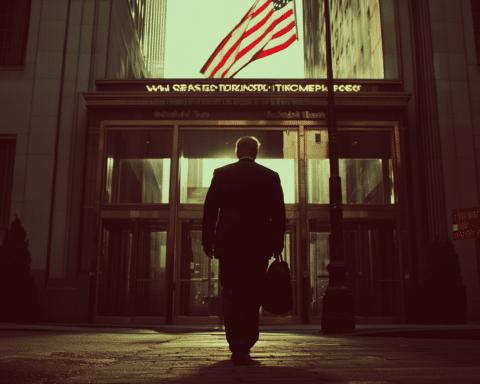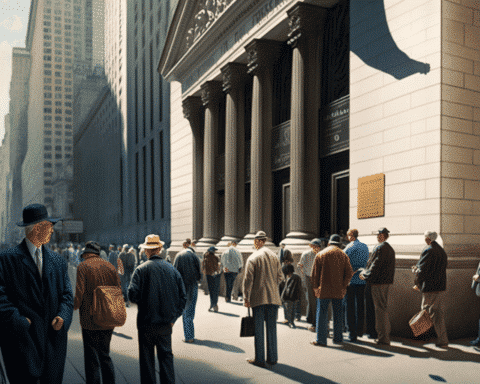Stocks on Wall Street have taken a dip on Thursday as concerns about persistent high inflation and rising interest rates persist.
The S&P 500 index was down 0.6% following a report that showed inflation at the wholesale level was lower than expected, which echoed a previous report on consumer-level prices that suggested inflation isn’t cooling as quickly as hoped.
The Dow Jones Industrial Average was down by 0.7%, and the Nasdaq composite was down by 0.5%.
The stock market has been fluctuating as the economy remains more resilient than expected, but concerns about high inflation and its impact on interest rates persist.
A higher interest rate can reduce inflation but also reduce investment prices and increase the risk of a recession.
This fear is particularly evident in the bond market, where yields have risen as traders increase their bets on the Federal Reserve’s interest rate hike.
The yield on the two-year Treasury, which usually reflects the Fed’s action, rose to 4.64%, near its highest level since November 2007.
The latest report showed that wholesale prices increased by 6% compared to last year, which was a slowdown from December’s 6.5% inflation rate but still higher than the 5.4% economists predicted.
The report also showed that inflation accelerated in January, even after excluding food, energy, and other prices.
The inflation report, along with other data, has cast doubt on Wall Street’s hopes that the Federal Reserve could slow down the economy enough to curb inflation without causing a recession.
The Fed has already raised its key overnight rate to a range of 4.50% to 4.75%, and plans to hike it a couple more times before holding rates at a high level through the end of this year.
The recent reports on inflation and the job market have aligned Wall Street’s interest rate forecasts closer to the Fed’s.
However, if inflation is higher than expected, the Fed may have to go beyond its current plans, causing concern among investors.
Loretta Mester, President of the Federal Reserve Bank of Cleveland, said in a speech that she saw a compelling case to raise rates by double what the Fed ended up doing at its recent meeting.
Some stocks on Wall Street were able to perform well despite the overall trend, such as networking giant Cisco Systems and waste services company Republic Services, after reporting better-than-expected earnings.
However, big tech stocks, vulnerable to higher interest rates, lowered the market, with Microsoft and Nvidia falling by 1.4% and 2%, respectively.
Wall Street stocks slipped on Thursday due to concerns about high inflation and rising interest rates.
The latest inflation report and other economic data have added uncertainty to the market as the Federal Reserve tries to balance the need to curb inflation without causing a recession.
The recent reports on inflation and the job market have forced Wall Street to align its interest rate forecasts closer to the Fed’s, but if inflation proves to be higher than expected, the Fed may have to go beyond its current plans, causing concern among investors.
Nevertheless, some stocks were able to perform well, while big tech stocks were among the most affected by the overall trend.




